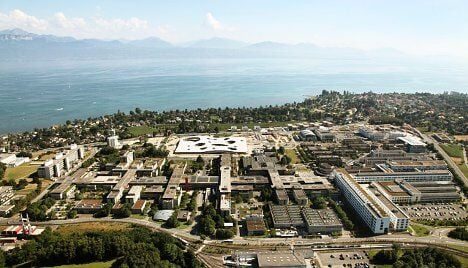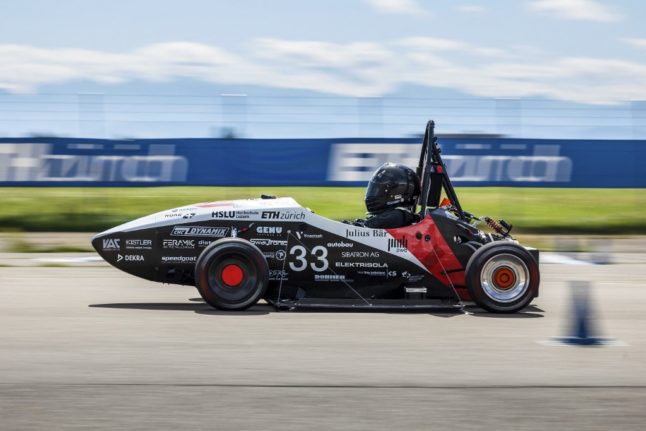Companies linked to the Lausanne-based tech university raised 397 million francs ($393m) in 2016, smashing the previous record set in 2014, of 242 million francs, EPFL said in a statement.
The funds were raised by spin-offs created as a result of technology developed in an EPFL lab or created by a campus researcher, as well as companies located within EPFL’s Innovation Park, a tech community on the EPFL campus that hosts over 120 start-ups and 23 large companies including Intel, Logitech and Siemens.
A huge 100 million francs was raised by one company alone, EPFL spin-off Mindmaze, which specializes in rehabilitation for brain injury survivors through virtual reality.
AC Immune, a start-up that has developed a vaccine for Alzheimer’s, was the second biggest fundraiser, attracting 42.7 million francs.
The amount raised this year is a clear sign of the solid health of EPFL’s business ecosystem, said the institute, adding that many of the 15 or so start-ups created each year manage to find investors quickly.
“While total funds didn’t surpass 50 million francs before 2010, they have regularly exceeded 100 million francs ever since,” said Hervé Lebret, head of a fund that helps EPFL companies get off the ground.
The expansion of Innovation Park and the creation of more assistance to startups has helped such businesses in recent years, added the statement.
In the past three years half of funded startups found their funding in Switzerland, a quarter in Europe and the rest from the US and Asia.
Established in its current form in 1968, EPFL is the sister school to Switzerland’s other technology institute, ETH Zurich.
Both are regarded as among the leading technology universities in the world. Earlier this year EPFL was declared the fourth most innovative university in Europe in a global ranking by Reuters, with ETH Zurich coming in at number ten.
Several startups incubated at EPFL have made headlines in recent months, particularly BestMile, which developed a fleet management system for driverless buses launched in Sion.
In August Switzerland was once again declared the most innovative country in the world in a ranking backed by UN agency the World Intellectual Property Organization (WIPO).



 Please whitelist us to continue reading.
Please whitelist us to continue reading.
Member comments